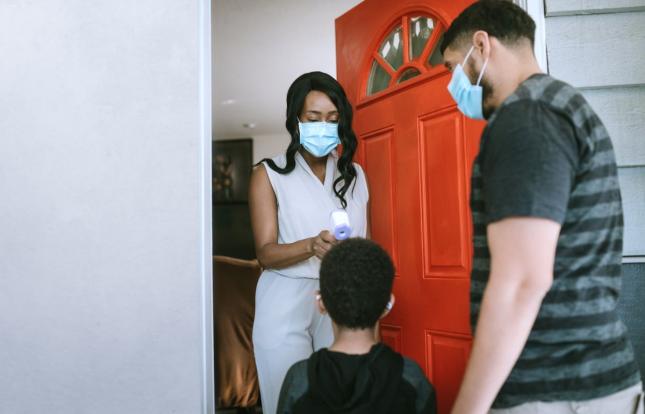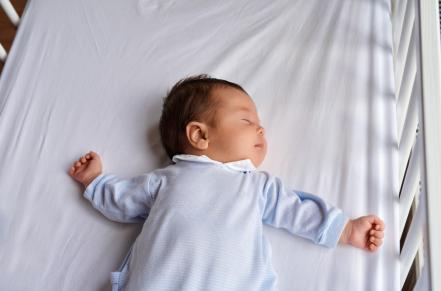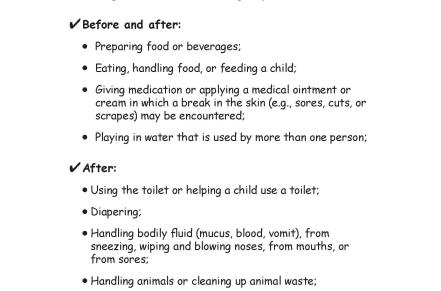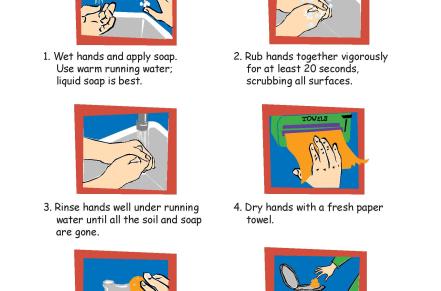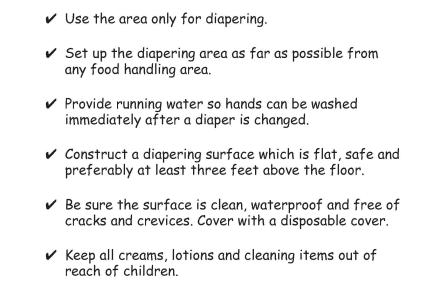The daily health check is an important part of each school day to ensure the health and safety of all children and staff in the early care and education (ECE) program. The purpose of the daily health check is to identify children with symptoms of illness and refer them to seek medical care when needed. The daily health check includes a brief assessment as you welcome each child into your program and can identify potential concerns about a child’s health, including a recent illness or injury. Daily health checks help reduce the spread of infectious diseases in childcare by identifying children who should stay home due to illness.
California Department of Social Services Community Care Licensing requires all licensed child care facilities to conduct daily health checks per Regulation 101226.1. The check includes ensuring that children with obvious symptoms including, but not limited to, fever or vomiting, are not accepted into care. The regulation also states that additional attention should be paid to children who have been absent due to illness or who have been recently exposed to a contagious disease.
The daily health check gives you a picture of each child's baseline health. This will help you recognize any changes in their well-being during the day. You are checking for simple signs and symptoms that are easy to observe and report, rather than making a medical diagnosis. The health check is not a detailed exam of the child, and there is no need to take off any of the child’s clothing. The daily health check helps identify problems early so the family can seek medical care when needed.
When to conduct a daily health check
Conduct health checks daily in a relaxed and comfortable manner as each child enters the program and before the parent/guardian has left the building. Also, do a health check whenever you notice a change in the child’s behavior or appearance during the day.
How to do a health check
Greet the child at his or her level and ask the parent/guardian these questions: How is your child feeling today? How did your child sleep last night and how is their appetite? Listen to what the parent/guardian says as you observe the child. Use your senses to determine if the child is healthy and can participate fully in the day.
Look for signs and symptoms of illness:
- Breathing: Is the child coughing, wheezing, breathing fast or having difficulty breathing?
- Skin: Does the child look pale or flushed? Do you see any rashes, sores, swelling or bruising? Is the child scratching their scalp? Do you notice any new bruises or unexplained cuts?
- Ears, Nose, and Mouth: Does the child have red, crusty, or watery eyes? Is the child sneezing or pulling at their ears?
Listen for complaints: Is the child complaining about not feeling well or being in pain?
Feel for fever: Is the child’s skin warm or clammy? Is the child sweaty or having chills?
Smell for unusual odors: Is the child’s breath fruity or does it smell bad? Do you notice any other foul smells?
Discuss your findings with the child’s parent/guardian. If the child is not feeling well, or you see signs and symptoms of illness or injury, the child may need to be excluded from care, based on your program’s inclusion and exclusion policy for illness.
Document your findings by using a daily log, handwritten notes, electronic communication, sign-in sheets, or daily health checklist. Remember to keep all daily health documentation confidential and save the records.
Resources
California Childcare Health Program (2018) Daily Health Check at https://cchp.ucsf.edu/content/daily-health-check
American Academy of Pediatrics, American Public Health Association, National Resource Center for Health and Safety in Child Care and Early Education. CFOC Standards Online Database. Aurora, CO; National Resource Center for Health and Safety in Child Care and Early Education; 2020. https://nrckids.org/CFOC/Database/3.6.1 and https://nrckids.org/CFOC/Database/3.1.1.1
American Academy of Pediatrics (2019) Managing Infectious Diseases in Child Care and Schools, 5th Edition at https://shop.aap.org/managing-infectious-diseases-in-child-care-and-schools-5th-ed-paperback/
August 2021, UCSF California Childcare Health Program
This article was made possible with funding from the UCSF Chancellor’s Fund.

